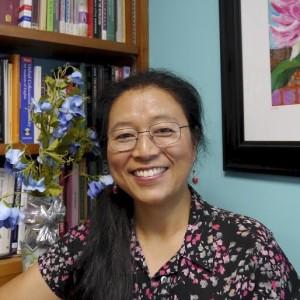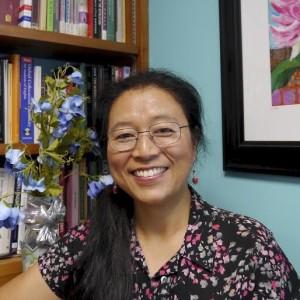
Credit: Georgia State University
ATLANTA–Having comfortable living conditions and independence from their adult children can help elderly Chinese immigrants find a sense of home and life satisfaction in the United States, but the inability to speak fluent English makes them feel unsettled, according to a research study.
Researchers at Georgia State University, the International Association of Long Term Care Directors and Shaanxi Normal University found favorable social policies toward older adults, such as Medicare, Medicaid, low-income housing and social services, are important factors that make older immigrants feel a sense of home in a foreign land. The findings are published in the Journal of Cross-Cultural Gerontology.
"Asian American seniors are minorities who receive little attention," said Dr. Jenny Zhan, associate professor in the Department of Sociology at Georgia State. "Their needs are often underserved because they are assumed to be self-sufficient and cared for by their families."
Asian Americans are one of the fastest growing ethnic groups in the U.S. The immigration rate of Asian Americans surpassed Hispanics in 2010 for the first time, and they became the largest portion of incoming immigrants. Many of these immigrants are older adults. Chinese Americans are the largest group and also the oldest, with a long life expectancy. The U.S. Census Bureau estimates that by 2050, the number of Asian Americans above 65 years old will be 2.4 million, three times the number in 2000.
Immigrants face numerous challenges when they relocate to a foreign country in old age, such as not speaking the language of the host country, not having a work history and having little income.
There is limited research about Asian American groups. No known study has examined the emotional aspect of Chinese seniors' sense of home in a foreign land. As Asian Americans are immigrating into the U.S. in larger numbers, growing old and retiring in the U.S., understanding their sense of home and life satisfaction could shed light on their quality of life, as well as inform policy makers and community organizations of future needs for social services.
This study surveyed 107 elderly immigrants of Chinese descent living in the metro Atlanta area. Five counties – Forsyth, Gwinnett, DeKalb, Clayton and Fulton – have the largest number of Asian Americans, ranging from 5 to 10.6 percent of the local population. In the city of Atlanta, Asian Americans and Pacific Islanders make up 5.1 percent of the population, an increase of 65.8 percent over the past 10 years. The population of Chinese Americans has increased 66.9 percent between 2000 and 2010, from 0.5 to 0.7 percent of Atlanta's total population.
Participants in the study, who ranged in age from 59 to 93 and had been in the U.S. for more than two years, were identified through the Asian American Seniors Association in Atlanta and a Chinese adult day care center. The majority preferred to have face-to-face interactions with the senior researcher or trained bilingual graduate students rather than complete the survey questionnaire themselves. Interviews were conducted in Chinese Mandarin and then transcribed into written Chinese. The study excluded seniors with clear signs of dementia.
Most of the participants (58 percent) came from Mainland China. In addition, 77 percent had become U.S. citizens, 55 percent had a U.S. pension, three in four were eligible for Medicare and 38 percent were eligible for Medicaid.
Overall, the participants rated their sense of home in the U.S. highly: 92 percent agreed or strongly agreed their home is a "good place" to live and 89 percent said "the place I live gives me a sense of home." Eighty-one percent said "they are satisfied with their lives."
Atlanta's warm weather was the most frequently mentioned factor that made the seniors feel at home and was a key element in choosing to live here, ranked before "being with children." Many also emphasized Atlanta's affordable cost of living and the availability of parks, libraries and scenery.
A large number of the seniors came to the U.S. to follow their children and help raise their grandchildren. More than half indicated a preference for separate living arrangements from their adult children, referring to "different habits, schedules, lifestyles or not wanting to be in their way."
One-third of the seniors said their inability to speak English made them feel very limited, particularly as they need to see a doctor more often. They must rely on their children as translators during doctor's visits.
Some expressed gratitude toward America's social policies for older adults, saying they are better than those available in their home country.
This study highlights the need for adequate social services for older, non-English speaking immigrants from all ethnic backgrounds and independent, low-income housing for seniors with a language barrier.
###
Co-authors of the study include Qi Wang and Zoe Fawcett of Georgia State, Xiaoqing Li of the International Association of Long Term Care Directors in Atlanta and Xiying Fan of Shaanxi Normal University in Xian, China.
The study was funded by Georgia State's Gerontology Institute.
Media Contact
LaTina Emerson
[email protected]
404-413-1353
@GSU_News
Home





